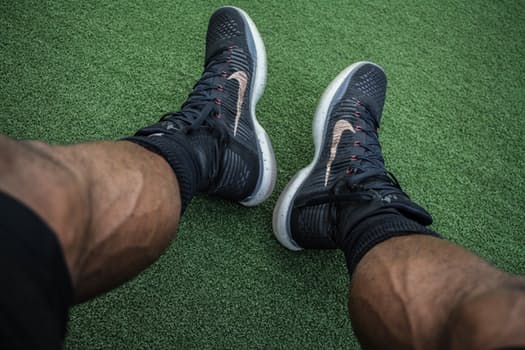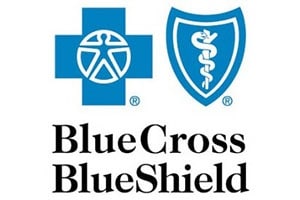Could Low Testosterone Increase the Risk of Varicose Veins in Men?

It’s a common misconception only women suffer from varicose veins, however, it is estimated that somewhere between 15% and 45% of men will develop varicose veins or venous insufficiency at some point in their lives. The exact number is unknown, primarily because a significant number of men do not seek treatment for vein disorders.
There are several factors that contribute to varicose vein formation; genetics, age, diet, exercise, stress, and weight are all important to vein health. But gender is also considered a risk factor and there are some indications that our “sex hormones” may be the culprit - particularly estrogen.
Estrogen in Men? Definitely!
While women synthesize most of their estrogen in their ovaries and other reproductive tissues, men produce estrogen through a process involving an enzyme called aromatase. Aromatase is found in many tissues including gonads, brain, adipose tissue, blood vessels, skin, and bone. Aging men sometimes have too much aromatase activity, which causes their testosterone to convert to excess estradiol, the predominant form of estrogen.
Estradiol is a known contributor to varicose vein development in pregnant women; it shrinks and impairs the function of venous valve flaps, breaks down the integrity of venous walls, and causes blood vessels to dilate, or get wider. So what does estrogen have to do with varicose veins in men? It could be a lot!
While it is too small to be clinically significant, a study published by researchers at the Universitat Leipzig in Germany noted that all of the men in their study with varicose veins had higher levels of estradiol and lower levels of testosterone (low T) compared to the men with healthy veins. What this shows is that estradiol alone is not the culprit, rather the ratio of estradiol to testosterone appears to be the determining factor.
As men age, testosterone levels naturally decline. Where a younger man’s testosterone to estrogen levels might naturally be 50:1, an older man might experience a ratio of 8:1. What the science seems to suggest is that when the ratio of estrogen to testosterone is out of whack, men are at higher risk for developing vein disorders.
Concerned About Your Vein Health?Click Here to Download a Self Assessment |
Restoring Hormone Balance is Good for Vein Health
The hormonal system helps to govern all aspects of the bodies’ functions. Its interconnectedness is complex; its balance is somewhat delicate and can be easily thrown off track. We are bombarded by stories about potential hormone disrupters and estrogen mimickers that some fear, are messing up these complex systems. Regardless of whether this is true, there are many lifestyle choices that men can make to help maintain—or restore—hormonal balance and improve their vein health.
- Maintain a healthy weight. Obesity is a significant risk factor, both for overproduction of estrogens and for varicose vein formation. Not only do the extra pounds increase strain on the vascular system, but also fat cells are particularly rich in the enzyme aromatase. The more aromatase in the system, the more testosterone will be converted to estradiol.
- Manage your stress levels. Cortisol, the hormone associated with the “fight or flight” response, increases when stress levels are high. High cortisol levels inhibit testosterone production.
- Get good quality sleep. Most testosterone is produced when we sleep. Actually, a lot of important things happen only when we are sleeping. Plus, sleep is just awesome.
- Nourish your body. It is important to eat a wide variety of whole foods in order to get the building blocks required for good hormone production and balance.
- Exercise the right amount. Moderation in all things. Studies have found that men who exercise a LOT have lower testosterone levels than their counterparts who exercise a moderate amount.
Men who develop varicose veins should consult with a qualified vein specialist to determine whether their vascular system is compromised, and what can be done to improve venous blood flow back to the heart.
Tempe-based vein specialist, Jilanne Rose of Advanced Vein Institute of Arizona, has noticed that men tend to wait until their veins get painful—or worse—before seeking treatment. Because of this tendency, she encourages everyone to look out for the vascular health of the men—and the women—in their lives.
And these days, Jilanne adds, it is easier than ever to improve vascular health. Vein treatments are less invasive, less painful, less expensive and more successful than they have ever been. Simply make an appointment with a qualified vein specialist who can precisely determine the health of your lower extremity veins, and help you make informed decisions about what treatment (if any) is right for you.
Advanced Vein Institute of Arizona is proud that our offices are staffed with only board-certified providers. To help them determine whether you might benefit from a minimally invasive vein treatment, please answer these questions:
Read MoreVein Treatment It is easy to forget about unsightly veins in the winter time when leggings and sweats are worn almost 24/7. In addition, the cooler weather helps to mitigate symptoms such as fatigue, heaviness, cramping, and swelling; all indications of underlying venous insufficiency. With spring right around the corner, now is the time to…
Read MoreAs you navigate your way through the barrage of holiday parties this season, it may be difficult to decide on certain indulgences. The general recommendation here at Advanced Vein Institute of Arizona is everything in moderation. However, there is one thing on a lot of holiday tables that can benefit your vascular health…cranberries! Due to…
Read MoreYou have put in all the hours of training in the water, time in the saddle and on the road; read and studied nutrition, hydration, and injury prevention. IRONMAN Arizona is less than 6 weeks away, and yet something might not be completely dialed in. You are stronger and more fit than you have ever…
Read MoreBinge watching your favorite series or games this week? . . . Avoid painful legs! Are you in to Game of Thrones or the Handmaid’s Tale? Maybe you are an avid NFL or MLB fan and can’t wait for a day to lounge around and catch up on the series, or binge all the games…
Read MoreDancing with Varicose Veins Has leg pain kept you in your seat and off the dance floor these days? You may have eliminated dancing because of symptoms associated with vein disease. Vein disorders are not always visible to the naked eye. Varicose veins or venous disease can cause aching legs, painful or restless legs, as…
Read MorePeripheral Vascular Disease: Not Always Just An Artery Issue When the term peripheral vascular disease (PVD) comes up; it is a common misconception that this refers to just arterial disease. PVD refers to both the arterial and venous circulation. Arteries in the legs carry blood from the heart to the toes (periphery), and veins carry…
Read MoreVARICOSE VEINS, VENOUS INSUFFICIENCY AND LEG ULCER TREATMENTS Insurance coverage is always dependent upon benefit eligibility, as outlined in your specific benefit plan. Some employers have chosen not to cover varicose vein treatment specifically, so be sure and check with your human resources department or call the toll-free number on the back of your insurance…
Read MoreTimes have changed – There are alteratives to painful vein removal surgery Gone are the days when your only remedy for varicose veins was vein removal or vein stripping. Our in-office procedures are the gold-standard. If you are scheduled for a procedure and would like to know what other options are available, call today for…
Read More






